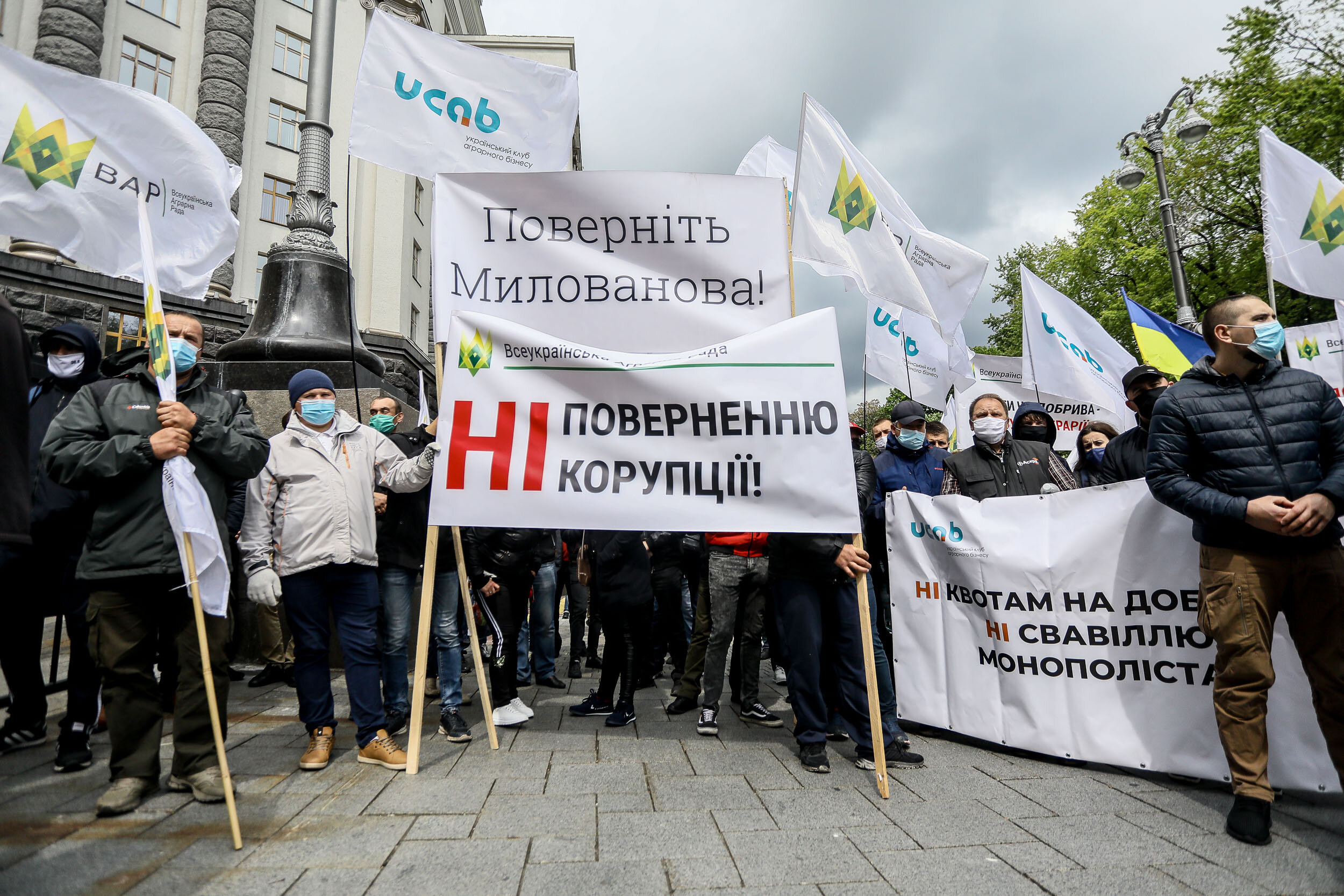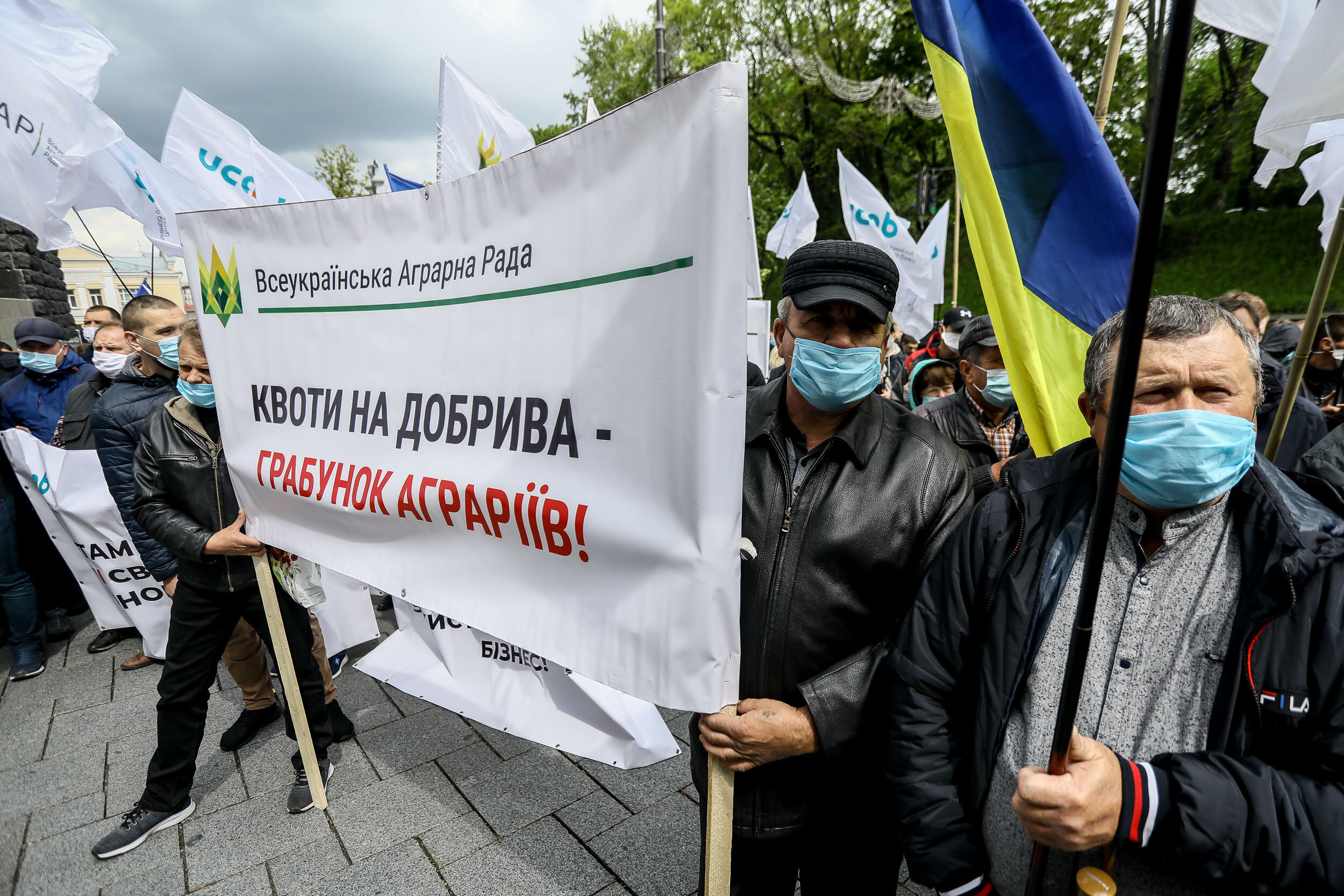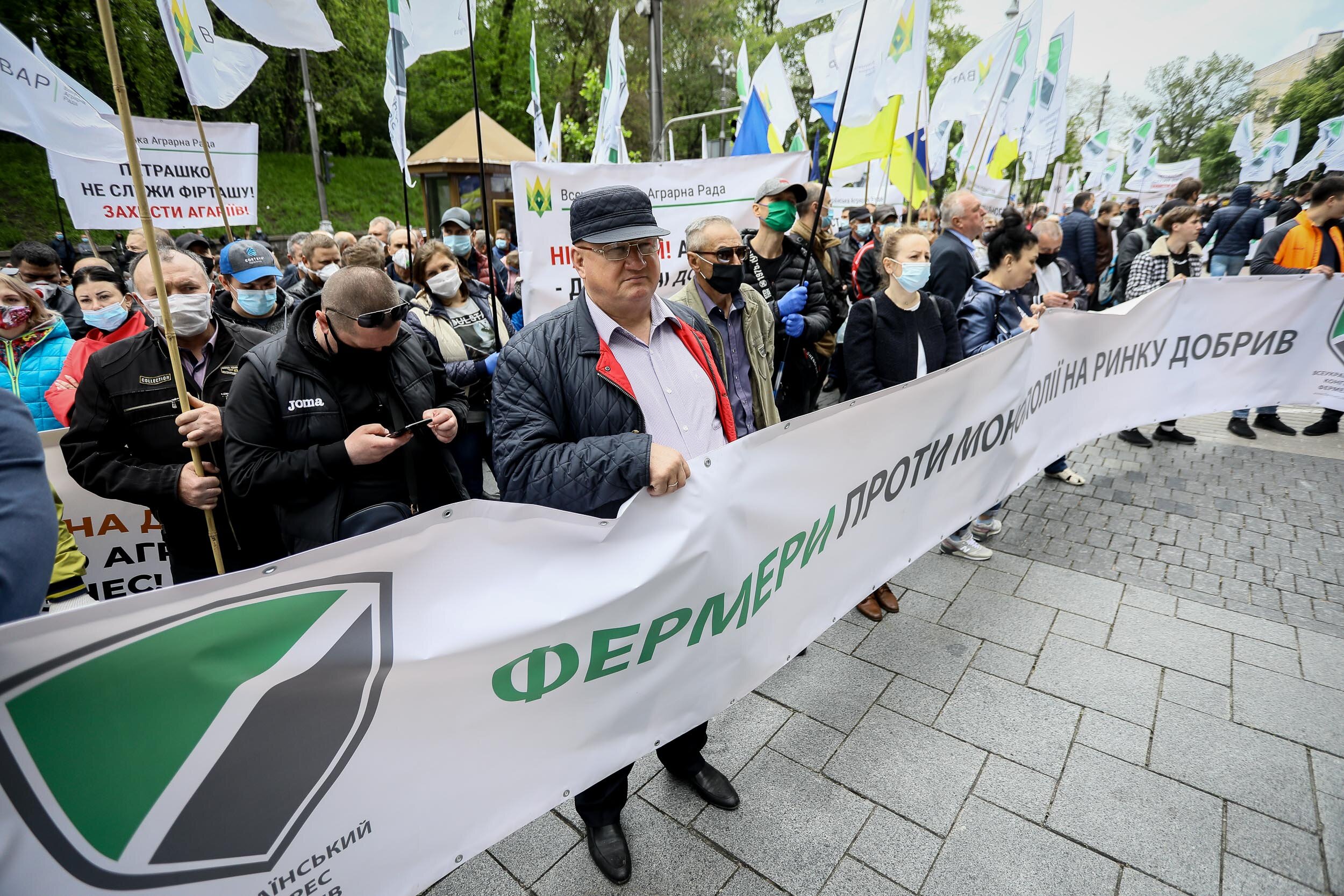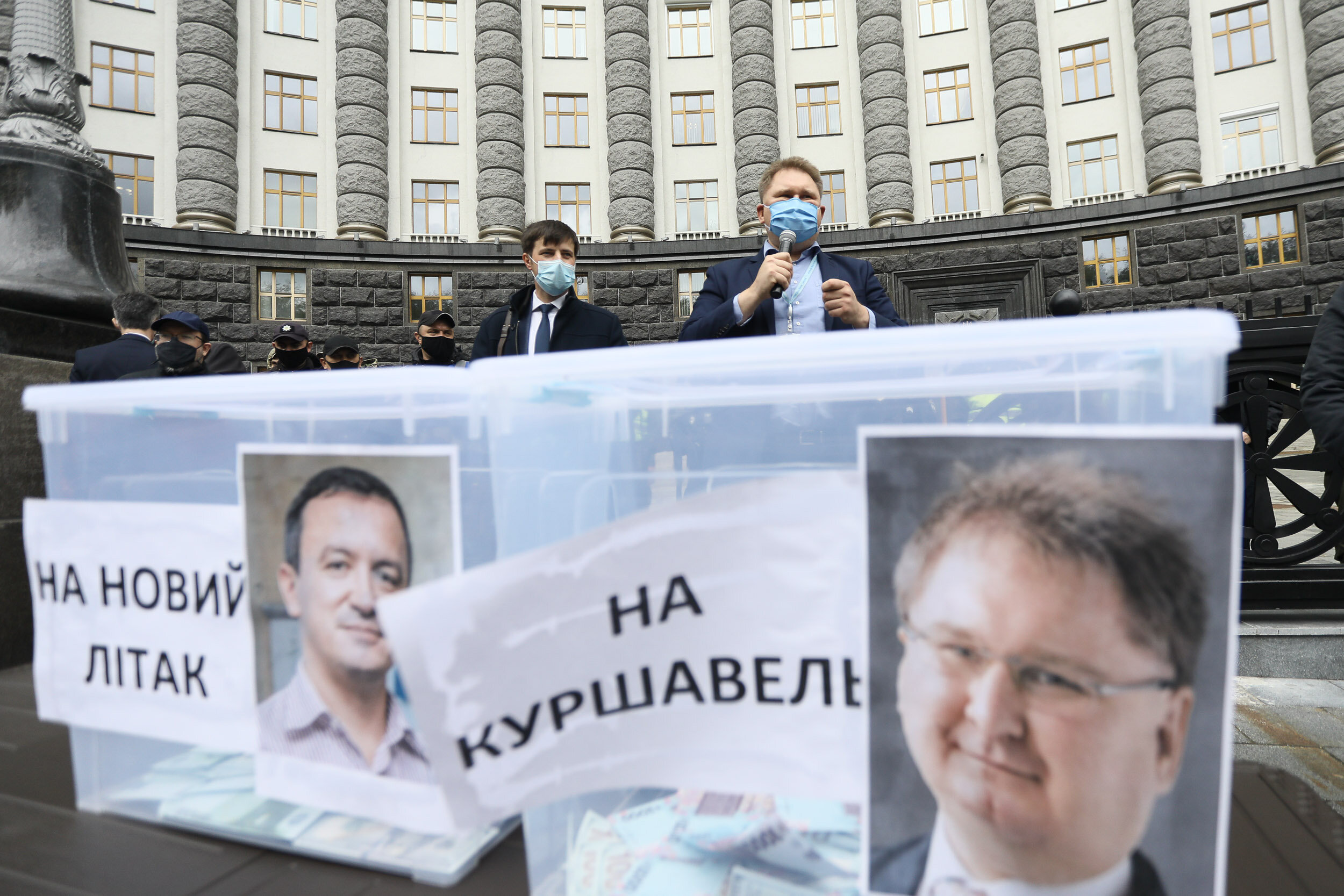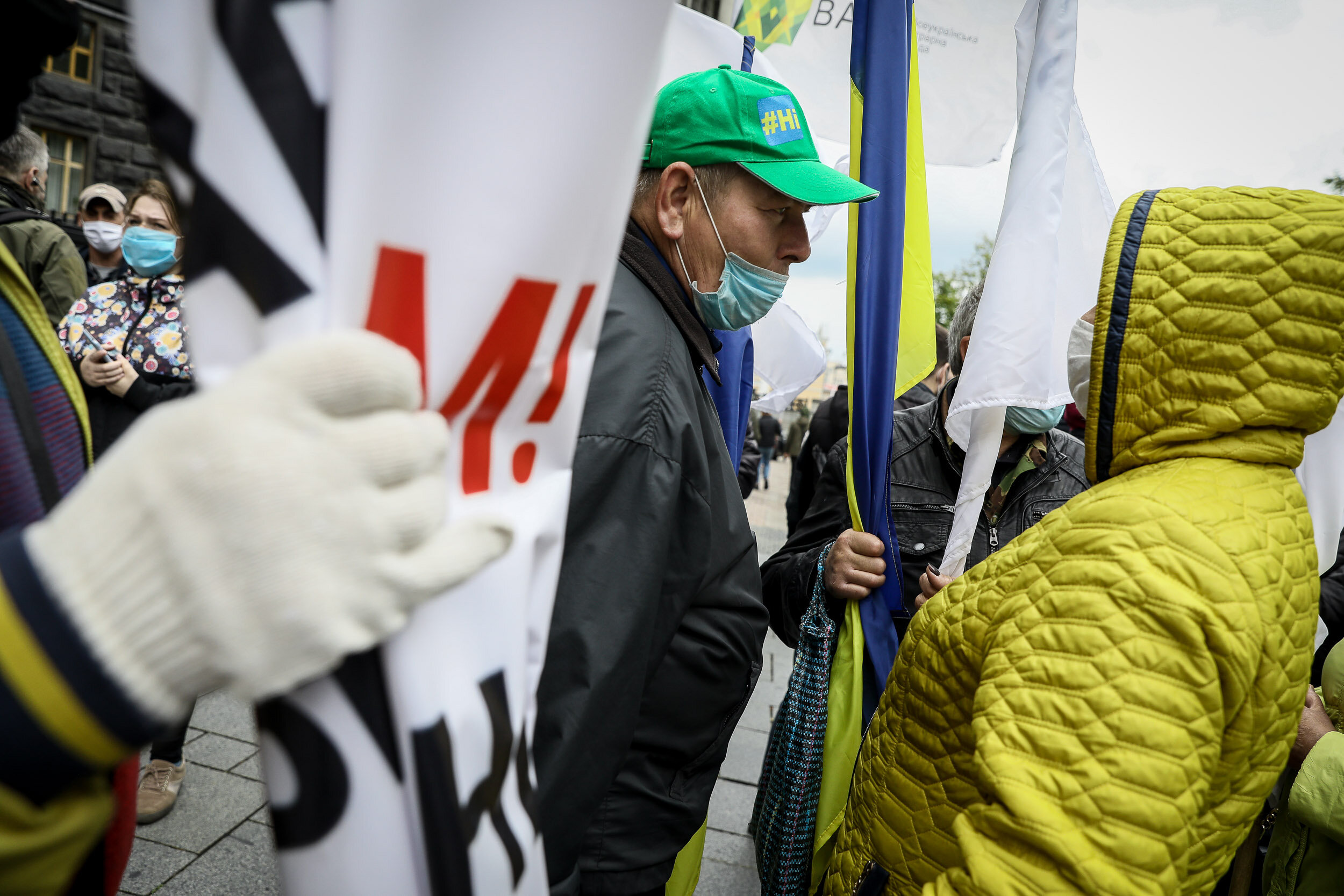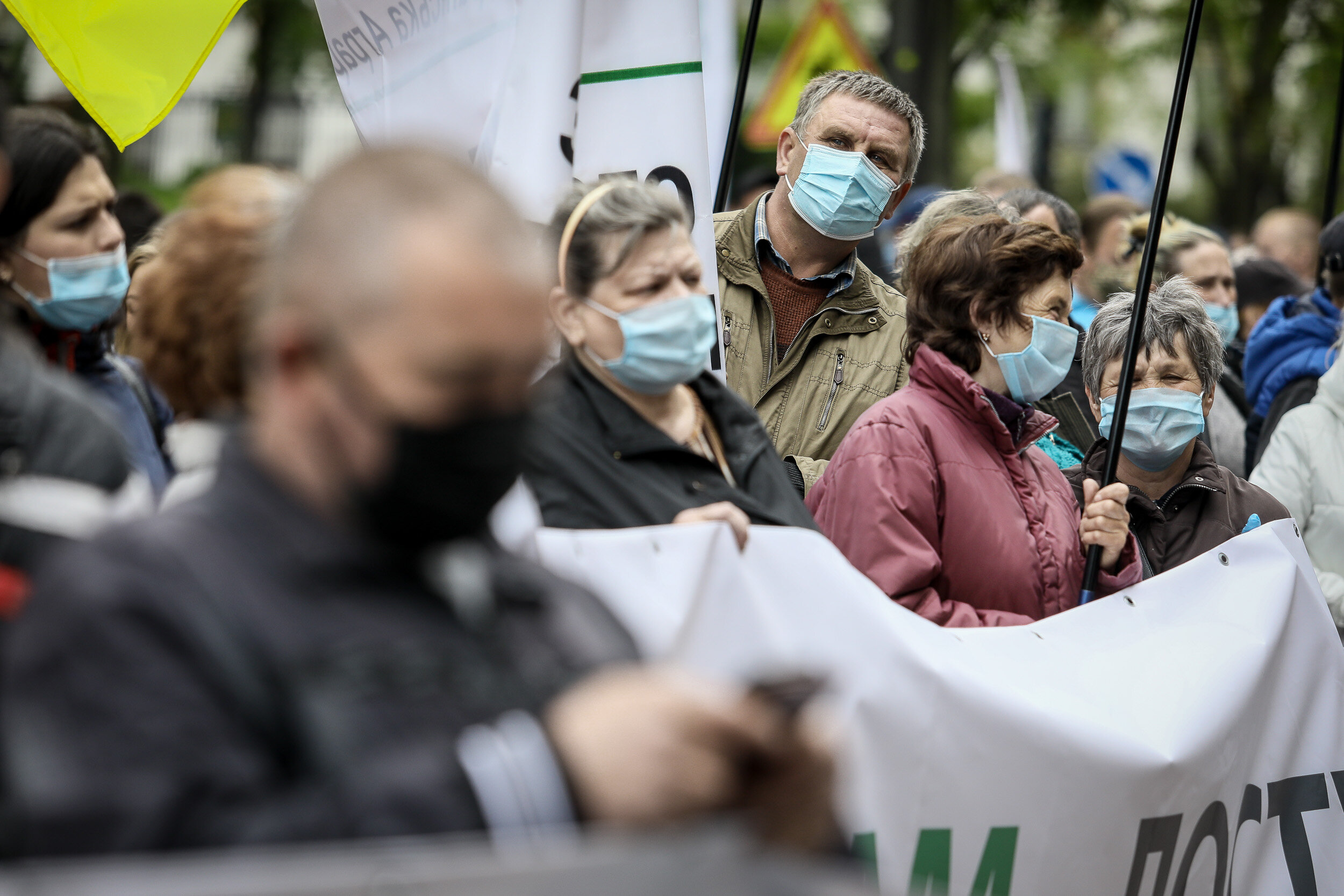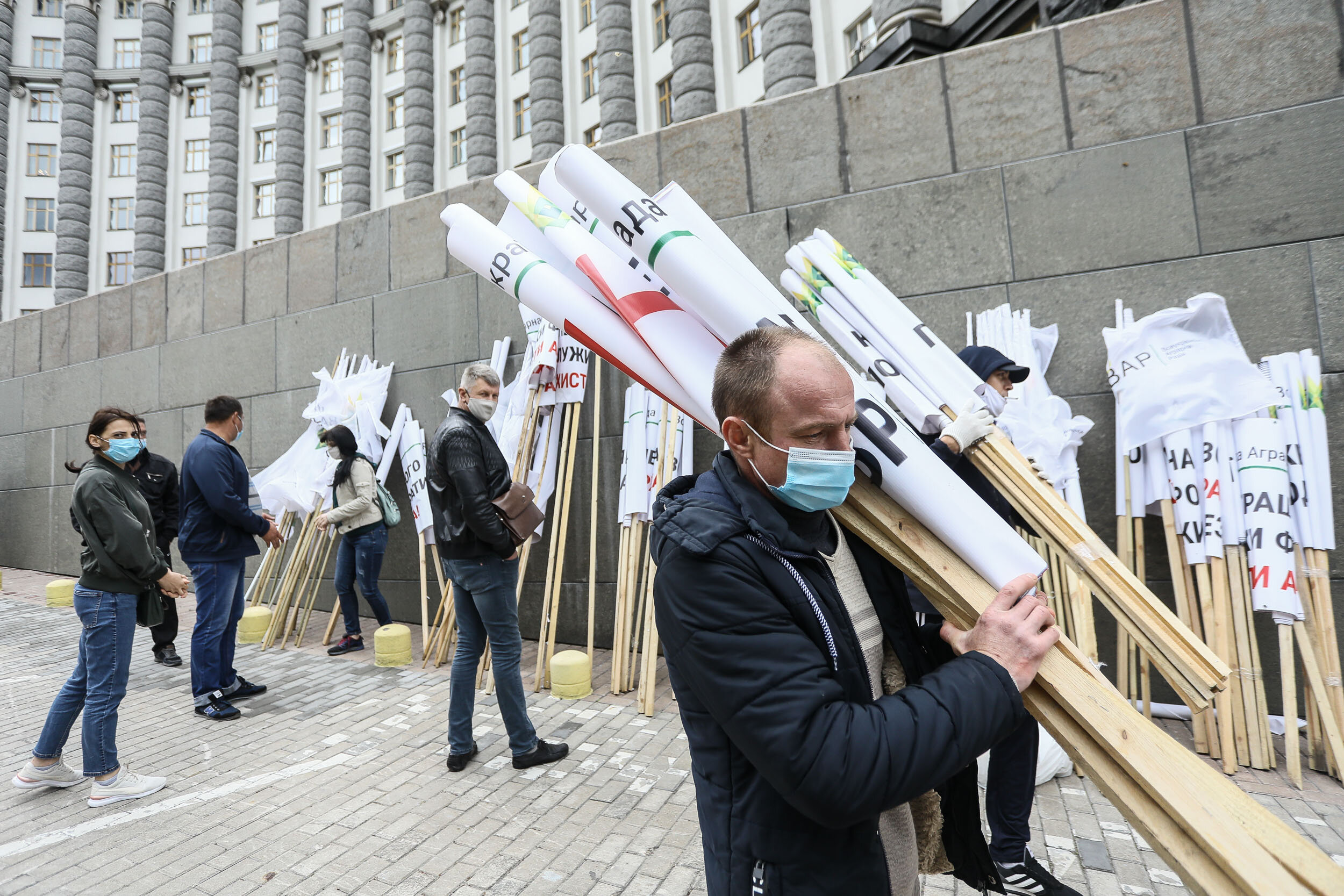Quotas on fertilizer imports would bleed Ukrainian agriculture dry to enrich oligarchs, protesters came out to tell the Cabinet of Ministers.
A rally of over a thousand people representing farmers and agricultural companies took to the streets in front of the Cabinet building on May 28 to protest the quotas proposed by the Ministry of Economic Development a week earlier.
These would limit the import of mineral fertilizer from abroad. Farmers would have to buy the rest on the domestic market, which is dominated by fugitive oligarch Dmytro Firtash.
Foreign fertilizers tend to be of higher quality than domestic products and are, on average, about 30% cheaper. Farmers worry that, with artificially restricted competition, they will have to pay whatever prices domestic oligarchs decide to set.
“We are outraged by the decision of the Ministry of Economic Development to put a quota on imported mineral fertilizers,” said Ivan Slobodianyk, head of the Agro-Food Council and the Ukrainian Farmers’ Congress.
The demonstrators said that the ensuing monopoly would deal a heavy blow to an agriculture sector that is already struggling with a lack of rainfall, exchange rate fluctuations and other problems.
“Under these circumstances, raising fertilizer prices is mockery and theft,” said Slobodianyk.
State attacks on fertilizer imports — restrictions and anti-dumping duties — are a recurring story in Ukraine. In 2018, the Cabinet announced it would embargo mineral fertilizer from Russia, ultimately forcing one major player to exit the Ukrainian market. Many see Firtash’s hand behind these moves.
Taras Kachka, the deputy economy minister involved in developing the quota, came out to speak to the protesters. He said that the decision was not final and that the ministry wants to protect farmers as much as domestic fertilizer producers. He then invited the agrarians to further negotiations.
“Our task is to reach a solution that will be in the interests of farmers, not oligarchs, and, even more so, not in the interests of foreign companies that want to control our market,” said Kachka.
The demonstrators prepared a letter to President Volodymyr Zelensky, asking him to intervene.
Controversial quotas
On May 21, Kachka stated that a quota was necessary to protect domestic producers from “overproduction in the region, especially in Turkey.” He said that the plan came out of months of market research, promised that market interference would be minimal and would not lead to price increases and that it is intended to “maintain the diversification and predictability of imports.”
“I understand that both producers and consumers of fertilizers are national producers and protecting them is my responsibility,” he wrote on Facebook. “We will protect the national producers of both fertilizers and agricultural products. And we will do it wisely.”
Farmers aren’t buying it. Agricultural industry groups united in declaring that the quotas would let domestic producers jack up prices even higher, without having to compete. This would hurt both farmers and end consumers, they said.
Kachka’s justification, “to put it mildly, does not match reality,” said Oleg Nivievskyi, an economist and agricultural expert at the Kyiv School of Economics.
He added that the price increase would hit small farmers the hardest. Fertilizer makes up a fifth of their expenses, compared to about 13% for larger enterprises.
Hennady Novikov, head of the Agrarian Union of Ukraine, said it doesn’t make sense to help the domestic chemical sector at agriculture’s expense. “Our competitors, farmers in different countries, our neighbors, are buying fertilizers cheaper,” he said. “We are uncompetitive.”
The Union of Manufacturers, Importers and Traders of Agricultural Chemistry and Agricultural Technology, which got its hands on an informal copy of the proposed quotas, argued that these limitations are designed to prevent importers from influencing prices.
Oleh Levinsky, a farmer at the protest, said he is not against domestic agrochemical companies, but is wary of Ukraine’s deeply uncompetitive market. “Today I buy 60% foreign fertilizers because they are better. I am ready to buy domestic fertilizer if it’s of appropriate quality, not to overpay for something unknown.”
Following the outcry last week, the plan was delayed by one month, but the ministry is still working on it, fueling a steady stream of opposition.
Firtash triumphant?
Three quarters of certain domestic mineral fertilizers, which would fall under the quota, are produced by Firtash’s company Ostchem.
The key ingredient for producing mineral fertilizer is natural gas. Firtash dominated the gas industry as an intermediary in gas deals between Russia and Ukraine and harnessed his connections to build a fertilizer empire.
In September, the Antimonopoly Committee of Ukraine ordered the company to sell off one of its five nitrogen fertilizer plants. The committee also imposed the highest possible fine of Hr 107 million ($4.25 million) on NF Trading AG, which sold Ostchem’s fertilizers in 2014–2017.
Firtash’s company strongly criticized the committee’s decision, saying it violated the law and vowed to appeal it.
Firtash currently lives under house arrest in Vienna, where he is entangling in a long-standing legal battle. Austrian authorities detained the Ukrainian oligarch five years ago and are close to extraditing him to the U.S. on corruption charges. The U.S. Federal Bureau of Investigations has accused him of paying an $18-million bribe to officials in India for a titanium mining permit.
Firtash’s holding company Group DF, to which Ostchem belongs, told journalists that it considers the proposed quotas to be “healthy protectionism.” The company also pointed out that the EU also protects its chemical companies and sees no reason why Ukraine shouldn’t do the same.
Protectionism criticized
Nivievskyi says that foreign competition has proved better for the Ukrainian market and has spurred domestic companies to become more efficient and produce higher-quality products over the past several years.
Critics of the quota added that the small handful of domestic fertilizer producers don’t need protection as they are profitable and sell fertilizer abroad at a lower price than they do to Ukrainian consumers.
“Even now, domestic prices for ammonium nitrate are 30% higher than in the world, while Ostchem exports urea at $200 per ton, but sells it for $217 on the domestic market, minus packaging costs,” wrote Mykhailo Sokolov, chairman of the Ukrainian Agrarian Council. “No one is forcing Ostchem to sign export contracts for $200 per ton, which means they are profitable.”
Nivievskyi also said that quotas may provoke a reaction from the EU, which can limit agricultural imports from Ukraine.
“We are changing from a predictable trading partner to an unpredictable one, and this only harms the whole country,” he said.
